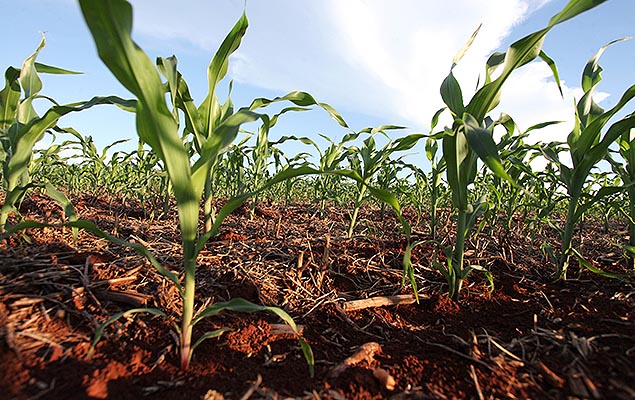Latest Photo Galleries
Brazilian Markets
17h19 Bovespa |
+0,74% | 125.124 |
16h43 Gold |
0,00% | 117 |
17h00 Dollar |
-0,97% | 5,1993 |
16h30 Euro |
+0,49% | 2,65250 |
ADVERTISING
Mexico Eyes Duty-Free Maize Deals with Brazil and Argentina
03/28/2017 - 12h52
Advertising
FINANCIAL TIMES
Mexico, the world's biggest buyer of US corn, is considering offering duty-free access to Brazilian or Argentine maize as an alternative to American imports in a move that could have big consequences for US farmers worried about President Donald Trump's trade and tax agenda.
Mexico currently imports 98 per cent of its corn from the US and total US farm sales to Mexico were $17.7 billion last year - five times greater than when the North American Free Trade Agreement came into force in 1994. Mexican corn imports from the US were worth $2.3 billion in 2015, according to the US Department of Agriculture,
But Mr Trump has criticised Nafta as unfair to the US, vowing to renegotiate the deal or walk away, impelling Mexico to speed up a search for alternative suppliers in South America.
"I am pretty optimistic about the possibility of having a deal with these countries soon," Juan Carlos Baker, Mexico's deputy economy minister, told the FT in an interview.
"We're pretty far advanced with Brazil... Argentina is a few steps behind," he said, adding he expected to visit Argentina in April or May and soon after to meet Brazilian officials in his sixth such bilateral meeting since 2015.
| Dirceu Portugal/Fotoarena/Folhapress | ||
 |
||
| Corn planting in Campo Mourão |
Mr Baker said Mexico could give South American producers the same terms US farmers now enjoy. "It's going to be the result of negotiations but . . . if we want to give zero [tariffs], we have the possibility, if it suits us," he said.
Although importing grain from South America, rather than the US, might sound uneconomic, that is only because Nafta made it cost-efficient to rely on the US, Mr Baker said.
"US exports are by train. Bringing goods from Argentina or Brazil is by ship, which is still very cheap," he argued. "As of now, they are on a more-or-less equal footing [in terms of cost]. The thing is, right now, US producers do not pay any tariffs."
Without Nafta, US farmers would face expensive access to Mexico. Under World Trade Organization rules, corn would face a consolidated tariff of 194 per cent. "Some people don't realise that in the US," Mr Baker said.
The minister added that as part of a reciprocal deal Mexico could give South American producers the same terms US farmers now enjoy. "It's going to be the result of negotiations but . . . if we want to give zero [tariffs], we have the possibility, if it suits us," he said.
He noted that although Mexico had taken account of recent "brighter" comments from Wilbur Ross, commerce secretary, and Peter Navarro, the White House's top trade adviser, that were "brighter" than Mr Trump's "the reality is that the US has not yet . . . [officially] outlined its objectives, so we don't know what they want . . . There have been some reassuring declarations but these are not the actual talks."
US farmers are also increasingly concerned. John Heck, chairman of the US National Grain and Feed Association recently told industry executives that the organisation would "fight tooth-and-nail to preserve the many positive features" of Nafta for US agriculture.
Mexico also wants to deepen ties with Australia and New Zealand and sees Japan, Singapore and Malaysia as other key markets. Those countries were all members of the Trans-Pacific Partnership, all but killed off by Mr Trump's decision to pull the US out of the pact.
"There's no use crying over spilled milk," Mr Baker said of the TPP's demise. But he added: "We're not going to let [TPP negotiations] go to waste."
The Pacific Alliance, a Latin American trade bloc grouping Mexico, Chile, Colombia and Peru, this month created a new "associate member" status which Mr Baker said could be a way to bring in TPP nations.
The Pacific Alliance has duty-free access for 92 per cent of goods and a timetable for removing tariffs in the remaining 8 per cent, he added.



